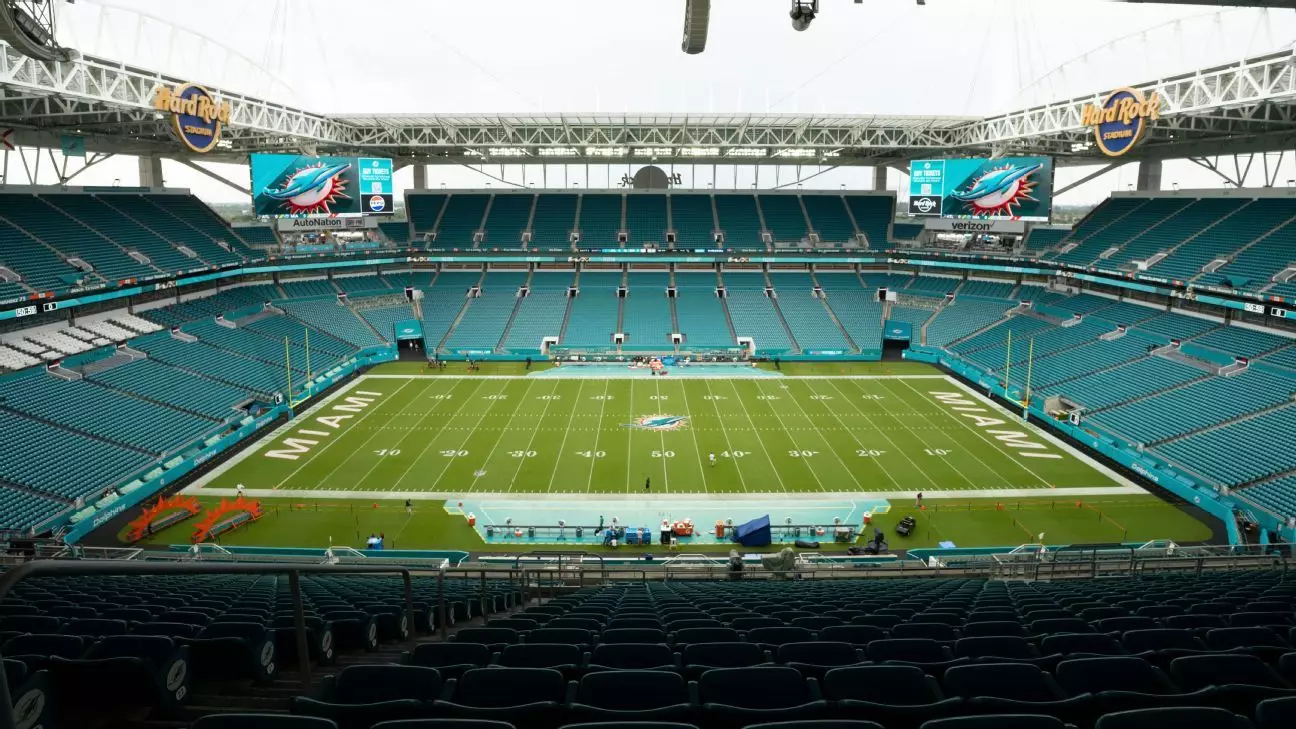As the landscape of global sports continues to evolve, football remains at the forefront of discussions regarding international fan engagement. Recently, Javier Tebas, president of LaLiga, has reignited the conversation about staging a competitive league match in Miami, eyeing next season as a possible time frame. While this might herald a new era for Spanish football in the United States, there are multifaceted challenges and implications to consider.
The aspiration to bring LaLiga matches to the U.S. isn’t a novel idea; it has been on the table since 2018 when there were plans to feature a match between Barcelona and Girona at Miami’s Hard Rock Stadium. However, opposition from the Spanish Football Federation (RFEF) and FIFA abruptly halted those intentions. This foiled initiative shed light on the complex dynamics between national federations and international football governing bodies, revealing a tension that has continued to permeate discussions surrounding football globalization.
Tebas’s recent remarks signal that the tides may be turning. Although he has acknowledged the necessity of an agreement with the RFEF—currently in a state of uncertainty due to a pending presidential election—his optimism points toward a potential breakthrough. The recent legal developments involving Relevent Sports Group, a Miami-based entity associated with NFL team owner Stephen Ross, suggest that the door for hosting LaLiga matches in the U.S. might reopen. It’s a tumultuous situation where legal, cultural, and sporting interests intersect, necessitating a strategic approach.
The lawsuit initiated by Relevent Sports highlights an essential aspect of the modern football business: the interplay between legal frameworks and sporting aspirations. After encountering resistance from FIFA and the U.S. Soccer Federation (USSF), Relevent’s pursuit to arrange LaLiga matches in the U.S. became a test case for the broader ambitions of international leagues in foreign markets. The recent resolution to drop FIFA from the lawsuit indicates a shift that could lead to more collaborative partnerships between European leagues and U.S. sports entities.
This complexity is compounded by FIFA’s overarching policies designed to protect national territories from foreign intrusion. By allowing exhibition matches but restricting competitive fixtures, FIFA has drawn a line that, to many fans and stakeholders, seems increasingly rigid. If LaLiga does manage to organize a regular league game in Miami, it could set a precedent for other leagues to follow, not just from Spain but also from other European elite competitions.
Nevertheless, Tebas’s ambitions come amidst a growing unrest among players regarding the congested football calendar. Rodri, the Manchester City midfielder, has expressed that players are nearing a breaking point, with some even contemplating strike actions. The announcement of an expanded Club World Cup, set to occur in the United States next summer, raises significant concerns about fixture congestion, further complicating the scenario. The Spanish Players’ Union (AFE), represented by president David Aganzo, has been vocal in their support for players who may choose to strike if their concerns are not addressed.
In light of these tensions, Tebas’s support for a LaLiga match in the U.S. seems at odds with his criticism of the Club World Cup. His assertion that opposition to the expanded tournament does not conflict with his aim to expand LaLiga’s reach highlights the intricacies of prioritizing league growth while safeguarding player welfare. Decisions about international fixtures will require nuanced discussions that balance commercial aspirations with the core values of football and respect for the athletes’ wellbeing.
As the conversation around LaLiga’s potential expansion into the U.S. continues, it becomes clear that this move could have profound implications for the league, its clubs, and the broader footballing community. With ongoing negotiations and mounting pressures from players, finding common ground will be crucial. Stakeholders must navigate a myriad of challenges—including legal restrictions, player welfare, and the operational realities of hosting high-stakes matches overseas—to ensure that any future plans are sustainable and beneficial for all involved. The vision of a LaLiga match in Miami may be on the horizon, but its realization will depend on strategic alliances and careful consideration of all parties’ interests.


Leave a Reply